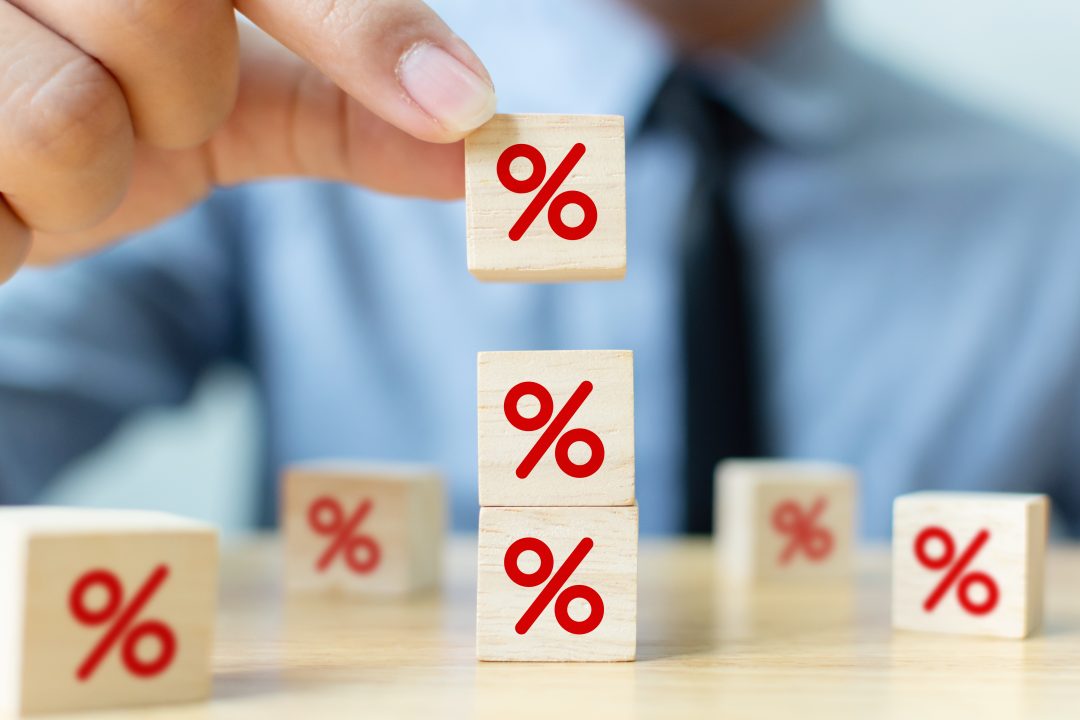After years of sitting on historically low interest rates, the monetary policy committee of the Bank of England has now raised rates four times in five months. At lunchtime on Thursday came the announcement that rates will rise to 1%.
Of course they are still, historically speaking, extremely low but the significance of today is that the upward trajectory is unmistakable. Some analysts expect that there will be further increases and that the rate should level off at about 2.5% late next year.
For those entering the mortgage market it is bad news. For those on fixed term deals that will come to an end in the next year it is a signal that their squeezed household finances could be squeezed yet further.
Even at 2.5% rates would be regarded as low although for those who have not lived through the unpredictability of yo-yoing rates, the modest but steady increases will come as an unwelcome shock.
The move is of course designed to squeeze inflation out of the UK economy. It is currently at a 30-year high. Indeed it could hit double figures later in the year as the cost of living crisis bites household disposable income with a vengeance.
There will be those who will indict the Bank of England with being asleep at the wheel on inflation. After all they are charged with keeping it at 2%. The prime tool in their armoury they have manifestly rejected using through the years of austerity.
In the aftermath of the banking crisis rates stood at 5%. They went all the way down to 0.5% and then to 0.25% in August of 2016 amid fears over economic dislocation associated with the decision to leave the European Union.
Rates went back up to 0.75% in November of 2017 before Covid induced emergency rate cuts saw the level cut to a mere 0.1%.
Covid also brought a quantitive easing orgy designed to keep the economy afloat.
No one doubts the menace of inflation. It fuels pay demands which can become unsustainable as they are not linked to productivity. It reduces living standards in real terms and almost forces savers to spend since the value of nest eggs depletes with every month inflation spikes.
The Bank did not raise rates following the banking crisis worried that they could reduce aggregate demand and tip the economy into recession.
Taken in the round, economic policy is a balancing act. Ideally inflation should be modest, employment and growth levels high which in turn boosts the tax take for the Chancellor to fund public services.
If preventing a recession is prime, then rates would not rise for it runs the risk of tipping the economy into recession.
The issue though is that the Bank can no longer bend the knee to laissez faire since the inflation rate is now a full blown crisis.
Recession could of course happen irrespective of the Bank’s position on interest rates but there is little doubt it is yet another variable that emboldens the view that the UK economy could be in recession by the end of the year.
The lesson from the 1970s is that sustained levels of high inflation recast the industrial relations landscape as cost-push inflation takes hold with businesses raising prices to fund higher pay awards born of the anger of workers that they simply cannot make ends meet.
Even with falling inflation there is no guarantee that we are not about to experience several winter’s of discontent for families are simply going to struggle unless there is more support to deal with the crippling rise in energy bills.
Recession, if it happens will pass. Inflation will be squeezed from the system, eventually. What will not pass quickly are the multi-layered drivers of the cost of living crisis.
All economic crises have political consequences. The growing anger of the ‘just about managing’ is about to redefine the political terrain on which the next UK General Election will be fought.
Follow STV News on WhatsApp
Scan the QR code on your mobile device for all the latest news from around the country


 iStock
iStock
























